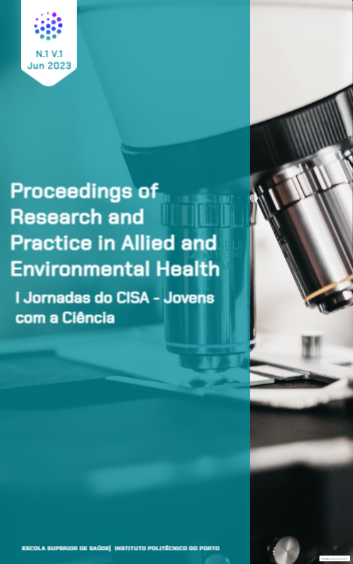Resumo
Background: Endometriosis is an estrogen-dependent gynecologic disorder defined by the presence of endometrium outside the uterine cavity [1, 2]. Vitamin D is a steroid hormone known for its importance in various biological processes [3]. Vitamin D may play a direct role in the changes that the endometrium undergoes during the menstrual cycle, as endometrial tissue also expresses enzymes involved in metabolism [3, 4]. The study of genetic polymorphisms in the genes of vitamin D metabolism, namely CYP2R1 rs2060793 and CYP2R1 rs12794714, may contribute to a better understanding to the development of endometriosis and become potential biomarkers of the disease [5, 6]. Objectives: To evaluate the applicability of CYP2R1 rs2060793 and CYP2R1 rs12794714 polymorphisms as potential biomarkers of genetic predisposition to the development of endometriosis. Methods: A case-control study was carried out that included the analysis of 482 women recruited between 2011 and 2018 in two public hospitals in Rio de Janeiro, Brazil, as part of the "Cooperation Protocol" between UEZO and CI-IPOP. Genetic polymorphisms were analysed by allelic discrimination with the StepOnePlusTM real-time PCR system using TaqManTM probes. Results: There was an association between women carrying the A allele of CYP2R1 rs12794714 polymorphism and early development of endometriosis in about 10 years (p=0.026). We also found that women carrying the A allele of the CYP2R1 rs12794714 polymorphism along with a BMI<30, caucasian women, and without ovarian disease developed endometriosis 10 years (p=0.031), 14 years (p=0.013), and 15 years (p=0.004) earlier, respectively, than women with the GG genotype. Conclusion: Although endometriosis appears at older age, there are factors that may be associated with the development of this pathology at an earlier age. The influence of genetic background, present from birth, seems to be of fundamental importance in the development of the disease at an early age. The allele A of CYP2R1 rs12794714 polymorphism could become a potential biomarker for disease prognosis.
Referências
Murakami K, Kotani Y, Shiro R, Takaya H, Nakai H, Matsumura N. Endometriosis-associated ovarian cancer occurs early during follow-up of endometrial cysts. International Journal of Clinical Oncology. 2020;25(1):51–8.
Eisenberg VH, Weil C, Chodick G, Shalev V. Epidemiology of endometriosis: a large population-based database study from a healthcare provider with 2 million members. BJOG An International Journal of Obstetrics and Gynaecology. 2018;125(1):55–62.
Alves M, Bastos M, Leitão F, Marques G, Ribeiro G, Carrilho F. Vitamina D–importância da avaliação laboratorial. Revista Portuguesa de Endocrinologia, Diabetes e Metabolismo. 2013;8(1):32–9.
Cermisoni GC, Alteri A, Corti L, Rabellotti E, Papaleo E, Viganò P, et al. Vitamin D and endometrium: A systematic review of a neglected area of research. International Journal of Molecular Sciences. 2018;19(8):1–13.
Cardoso J, Medeiros R, Dias F, Alves I, Ferrari R, Tostes P, et al. DROSHA rs10719 and DICER1 rs3742330 polymorphisms in endometriosis and different diseases: Case-control and review studies. Experimental Molecular Pathology. 2021;119.
O’Brien KM, Sandler DP, Shi M, Harmon QE, Taylor JA, Weinberg CR. Genome-Wide Association Study of Serum 25-Hydroxyvitamin D in US Women. Frontiers in Genetics. 2018; 9:67.

Este trabalho encontra-se publicado com a Licença Internacional Creative Commons Atribuição-NãoComercial-SemDerivações 4.0.
Direitos de Autor (c) 2023 Tatiana Varandas, Francisca Dias, Ana Sousa, Maria Sousa, Rui Medeiros

